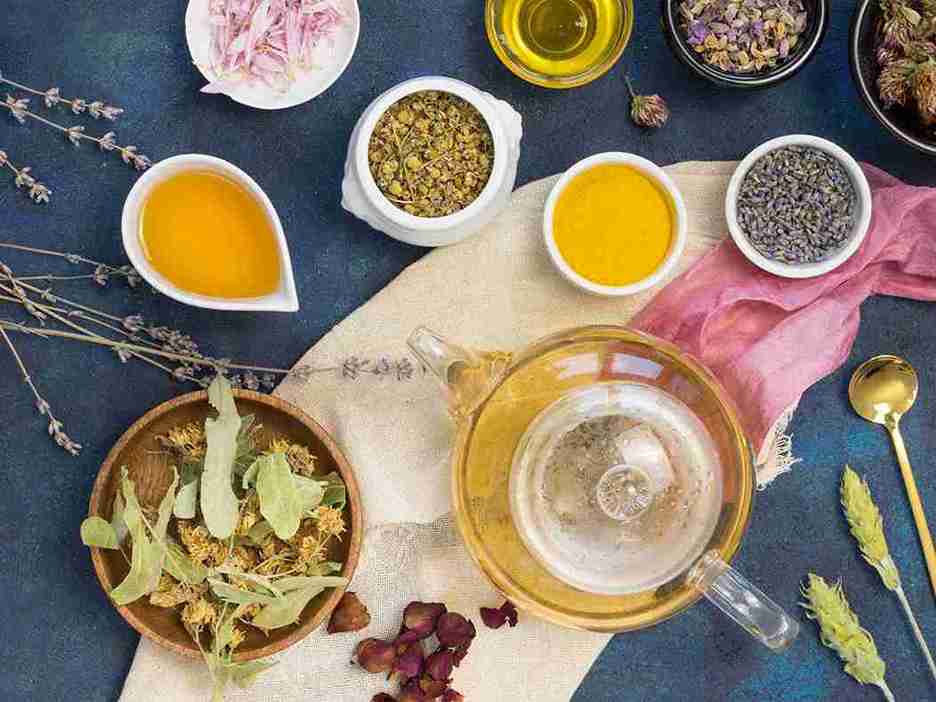
Premenstrual syndrome (PMS) occurs in about 90% of women of childbearing age, introducing different physical and emotional symptoms that can quickly interfere with daily life. While traditional solutions are easily accessible, more and more women are turning to natural remedies to ease their pain. This guide analyses ten effective Natural PMS Remedies that can relieve common symptoms from mood swings and irritability to bloating and cramps.

PMS usually occurs around one to two weeks before the time actual menstruation begins. The exact cause is unknown. Still, the hormones keep fluctuating (particularly estrogen and progesterone), and changes in brain chemicals like serotonin could be a trigger.
Common symptoms of PMS:
Though these symptoms are common, they should not severely impact your quality of life. If they do, it is essential to talk to a healthcare provider to rule out more serious conditions like Premenstrual Dysphoric Disorder (PMDD).
The foods you eat can play a significant role in PMS symptoms. Research has discovered that an anti-inflammatory diet rich in whole foods can reduce inflammation-driven symptoms such as cramping and mood swings.
Foods to Eat:
Avoid These Foods:
Exercise is not only healthy for your body—it's a remedy for PMS relief. Regular exercises:
Aim for 30 minutes of moderate exercise five days a week. PMS days can be spent doing comfortable activities—maybe yoga on high-symptom days and more intense exercise when energy levels allow. Consistency is more important than intensity.

Some herbs are effective for different PMS symptoms:
Chasteberry (Vitex agnus-castus): Possibly the most studied herb for PMS, chaste berry can help level out hormone fluctuations by controlling the pituitary gland. It decreases breast tenderness, bloating, irritability and mood swings.
Ginger: With strong anti-inflammatory properties, ginger can decrease menstrual cramps and nausea. Fresh ginger tea or supplements on symptomatic days may help.
Dong Quai: Commonly referred to as "female ginseng," this Chinese medicine can help stabilise hormonal balance and enhance circulation to the pelvic area, perhaps relieving cramps.
Evening Primrose Oil: Packed with gamma-linolenic acid (GLA), evening primrose oil can perhaps lower breast tenderness and mood symptoms.
Always consult with a physician before taking herbal treatments for PMS, particularly if you are taking other medications.
Stress can intensify PMS symptoms in multiple physiological ways. Practising stress-reduction methods like:
A number of supplements have been promising PMS relief naturally:
Magnesium: Magnesium supplements (generally 200-400 mg daily) may decrease water retention, breast tenderness, and mood symptoms, according to research. Magnesium glycinate tends to be well-tolerated.
Calcium: Studies have shown calcium supplementation (about 1000 mg daily) may decrease mood swings, hunger and pain.
Vitamin B6: Vitamin B6 is involved in producing neurotransmitters and can assist with PMS mood symptoms when used at safe dosages (about 50-100 mg daily).
Omega-3 fatty acids: These are essential fats with anti-inflammatory properties that can decrease period pain and mood symptoms.
Always consult a healthcare practitioner before taking any supplements, particularly at therapeutic doses.
Acupuncture, an integral part of traditional Chinese medicine, involves inserting very fine needles into precise points on the body. Evidence suggests that it can decrease PMS symptoms by:

Two very basic building blocks of health that have a huge impact on PMS are not often addressed:
Hydration
Adequate hydration will decrease bloating, relieve headaches, and help maintain overall hormonal balance. Strive for 8-10 glasses of water daily, more in exercise or heat.
Sleep Optimisation
Inadequate sleep worsens almost all PMS symptoms, especially mood swings and fatigue. To optimise sleep hygiene, you can follow these:
These basic practices help manage all other PMS management strategies.
Applying heat to the lower abdomen is very easy and effective. To reduce cramping, use a heating pad, hot water bottle, or warm bath. Alternating with gentle massage proves helpful for some women. It helps to:
Some herbal teas are mild but efficient in relieving several PMS symptoms:
Chamomile: Anti-inflammatory and soothing, helpful for anxiety and insomnia
Ginger: Relieves nausea and cramps
Peppermint: Reduces bloating and digestive irritation
Raspberry leaf: Traditionally used to tone the uterus and minimise cramping
Dandelion: Serves as a natural diuretic to minimise bloating
Having tea daily offers both psychological reassurance and physiological benefits on difficult days.

This natural therapy consists of consuming certain seeds at various stages of your menstrual cycle to aid hormonal balance.
Although additional research is necessary, most women experience better symptoms with regular practice over several months.
Keep in mind that each woman's body is different. What helps one may not help another. Think about keeping a symptom diary to monitor which remedies are most helpful for your individual symptoms.

Though effectiveness is individual, the most consistently effective natural treatments are regular exercise, magnesium supplementation, diet to reduce inflammation, stress reduction measures, and herbs such as chaste berries.

Yes, studies indicate magnesium's usefulness for many PMS symptoms. Magnesium stabilises mood-altering neurotransmitters, and pain perception neurotransmitters relax muscles to dampen cramping and is thought to decrease water retention.

Yes, some herbal teas contain compounds that can help alleviate symptoms of PMS. Ginger and turmeric tea have anti-inflammatory properties that could minimise cramping. Peppermint and fennel teas can alleviate bloating by relaxing the muscles in the digestive tract. Chamomile has compounds that relax muscles and ease spasms.
